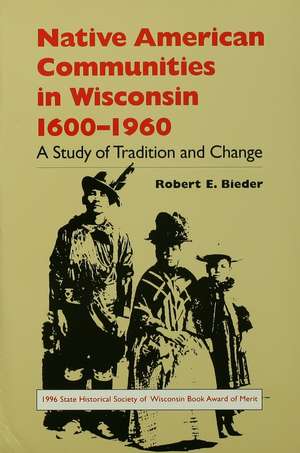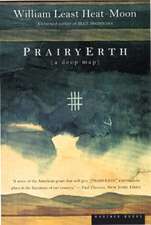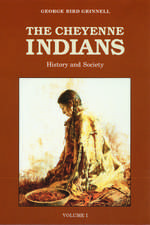Native American Communities in Wisconsin, 1600–1960: A Study of Tradition and Change: A North Coast Book
Autor Robert E. Biederen Limba Engleză Paperback – 15 mai 1995
The first comprehensive history of Native American tribes in Wisconsin, this thorough and thoroughly readable account follows Wisconsin’s Indian communities—Ojibwa, Potawatomie, Menominee, Winnebago, Oneida, Stockbridge-Munsee, and Ottawa—from the 1600s through 1960. Written for students and general readers, it covers in detail the ways that native communities have striven to shape and maintain their traditions in the face of enormous external pressures.
The author, Robert E. Bieder, begins by describing the Wisconsin region in the 1600s—both the natural environment, with its profound significance for Native American peoples, and the territories of the many tribal cultures throughout the region—and then surveys experiences with French, British, and, finally, American contact. Using native legends and historical and ethnological sources, Bieder describes how the Wisconsin communities adapted first to the influx of Indian groups fleeing the expanding Iroquois Confederacy in eastern America and then to the arrival of fur traders, lumber men, and farmers. Economic shifts and general social forces, he shows, brought about massive adjustments in diet, settlement patterns, politics, and religion, leading to a redefinition of native tradition.
Historical photographs and maps illustrate the text, and an extensive bibliography has many suggestions for further reading.
The author, Robert E. Bieder, begins by describing the Wisconsin region in the 1600s—both the natural environment, with its profound significance for Native American peoples, and the territories of the many tribal cultures throughout the region—and then surveys experiences with French, British, and, finally, American contact. Using native legends and historical and ethnological sources, Bieder describes how the Wisconsin communities adapted first to the influx of Indian groups fleeing the expanding Iroquois Confederacy in eastern America and then to the arrival of fur traders, lumber men, and farmers. Economic shifts and general social forces, he shows, brought about massive adjustments in diet, settlement patterns, politics, and religion, leading to a redefinition of native tradition.
Historical photographs and maps illustrate the text, and an extensive bibliography has many suggestions for further reading.
Preț: 129.77 lei
Nou
Puncte Express: 195
Preț estimativ în valută:
24.83€ • 25.99$ • 20.67£
24.83€ • 25.99$ • 20.67£
Carte tipărită la comandă
Livrare economică 31 martie-14 aprilie
Preluare comenzi: 021 569.72.76
Specificații
ISBN-13: 9780299145248
ISBN-10: 0299145247
Pagini: 304
Dimensiuni: 152 x 229 x 18 mm
Greutate: 0.42 kg
Ediția:New.
Editura: University of Wisconsin Press
Colecția University of Wisconsin Press
Seria A North Coast Book
ISBN-10: 0299145247
Pagini: 304
Dimensiuni: 152 x 229 x 18 mm
Greutate: 0.42 kg
Ediția:New.
Editura: University of Wisconsin Press
Colecția University of Wisconsin Press
Seria A North Coast Book
Recenzii
“Bieder presents a fresh look at the Indian tribes of Wisconsin and clearly describes what happened to them from their beginnings to 1960 . . . This book should appeal to anyone who has an interest in Wisconsin or Indian history.” —American Historical Review
“Robert E. Beider has written a very thoughtful book for the general reader about the history of American Indian communities in Wisconsin.”—Journal of American History
“Beider has written a valuable book with solid scholarship.”—Wisconsin Academy Review
“Throughout, Bieder's considerable skills as a writer give the book an unusual power and appeal . . . Where at times the prose has a near-poetic quality, creating vivid impressions and stirring strong feelings which enrage the reader in an empathetic as well as an intellectual understanding of the historical experiences of Wisconsin's native communities.” —Michigan Historical Review
Notă biografică
Robert E. Bieder is professor of American history at Indiana University and former associate director of the D'Arcy McNickle Center for the History of the American Indian at the Newberry Library in Chicago. He is the author of Science Encounters the Indian, Contemplating Others: Cultural Contacts in Red and White America, and A Brief Historical Survey of the Expropriation of American Indian Remains.
Descriere
The first comprehensive history of Native American tribes in Wisconsin, this thorough and thoroughly readable account follows Wisconsin’s Indian communities—Ojibwa, Potawatomie, Menominee, Winnebago, Oneida, Stockbridge-Munsee, and Ottawa—from the 1600s through 1960. Written for students and general readers, it covers in detail the ways that native communities have striven to shape and maintain their traditions in the face of enormous external pressures.
The author, Robert E. Bieder, begins by describing the Wisconsin region in the 1600s—both the natural environment, with its profound significance for Native American peoples, and the territories of the many tribal cultures throughout the region—and then surveys experiences with French, British, and, finally, American contact. Using native legends and historical and ethnological sources, Bieder describes how the Wisconsin communities adapted first to the influx of Indian groups fleeing the expanding Iroquois Confederacy in eastern America and then to the arrival of fur traders, lumber men, and farmers. Economic shifts and general social forces, he shows, brought about massive adjustments in diet, settlement patterns, politics, and religion, leading to a redefinition of native tradition.
Historical photographs and maps illustrate the text, and an extensive bibliography has many suggestions for further reading.
The author, Robert E. Bieder, begins by describing the Wisconsin region in the 1600s—both the natural environment, with its profound significance for Native American peoples, and the territories of the many tribal cultures throughout the region—and then surveys experiences with French, British, and, finally, American contact. Using native legends and historical and ethnological sources, Bieder describes how the Wisconsin communities adapted first to the influx of Indian groups fleeing the expanding Iroquois Confederacy in eastern America and then to the arrival of fur traders, lumber men, and farmers. Economic shifts and general social forces, he shows, brought about massive adjustments in diet, settlement patterns, politics, and religion, leading to a redefinition of native tradition.
Historical photographs and maps illustrate the text, and an extensive bibliography has many suggestions for further reading.
























